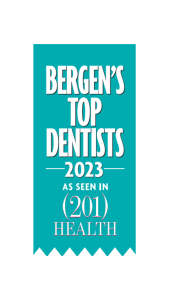Maintaining good oral hygiene is crucial for overall health, and regular visits to the dentist play a vital role in achieving this goal. However, there’s often confusion about how frequently one should schedule dental appointments. Some people adhere strictly to the biannual check-up recommendation, while others may visit only when they encounter a problem.
This blog will explore how often you should really visit the dentist, considering various factors such as individual oral health status, medical conditions, age, lifestyle habits, and specific risk factors. By understanding these factors, you can work with your dentist to develop a personalized care plan that ensures optimal oral health and wellbeing.
The Biannual Myth
For many years, the common knowledge has been to visit the dentist every six months for a check-up and cleaning. This recommendation stemmed from a combination of factors, including historical practices, common oral health issues, and the general understanding of preventive care.
However, this frequency is not necessarily applicable to everyone. It is important to understand your health situation and consult with your dentist to schedule appointments that make the most sense for you.
Individual Needs
The truth is, the ideal frequency of dental visits varies from person to person based on their individual oral health needs. While some individuals may benefit from biannual visits, others may require more frequent or less frequent appointments. Influential factors that determine frequency include:
- Overall Oral Health: Individuals with a history of dental problems such as cavities, gum disease, or other oral health issues may need to visit the dentist more often for monitoring and preventive care.
- Medical Conditions: Certain medical conditions such as diabetes or immune disorders can increase the risk of oral health problems, necessitating more frequent dental visits for early detection and intervention.
- Age: Children, teenagers, and older adults may have different dental needs that require varying frequencies of dental visits. Typically, children are advised to visit the dentist more frequently to monitor their growing teeth, assess alignment, and ensure proper oral hygiene habits. For adults, dental needs vary based on family history, lifestyle, and age-related concerns like oral infections or difficulty eating.
- Smoking and Diet Habits: Smoking and poor dietary habits can significantly impact oral health, increasing the risk of issues like gum disease and tooth decay, warranting more frequent dental visits.
- Pregnancy: Pregnant women may experience hormonal changes that affect their oral health, requiring additional dental care and monitoring.
Customized Dental Care Plans
Rather than adhering strictly to a one-size-fits-all approach, dentists now emphasize personalized care plans tailored to individual needs. During your dental visit, your dentist will assess your oral health status, discuss any concerns or issues, and recommend a suitable schedule for future appointments. Key components of personalized care plans are:
- Comprehensive Examination: A thorough examination of your teeth, gums, and mouth to identify any existing or potential issues.
- Discussion of Risk Factors: Your dentist will discuss factors such as diet, oral hygiene habits, medical conditions, and lifestyle choices that may impact your oral health.
- Preventive Measures: Recommendations for preventive measures such as fluoride treatments, dental sealants, or specialized cleanings to reduce the risk of future problems.
- Treatment Plan: If any dental issues are identified, your dentist will outline a treatment plan and schedule follow-up appointments as needed.
Signs You Should Visit the Dentist Sooner
While adhering to a personalized dental care plan is essential, certain signs indicate that you should schedule a visit to the dentist sooner rather than later. Warning signs include:
- Tooth Pain or Sensitivity: Persistent tooth pain or sensitivity to hot, cold, or sweet foods and beverages may indicate underlying dental problems such as cavities or gum disease.
- Gum Bleeding or Swelling: Bleeding, swollen, or tender gums are often signs of gum disease and should be evaluated by a dentist promptly.
- Persistent Bad Breath: Chronic bad breath that doesn’t improve with oral hygiene measures may be indicative of an underlying oral health issue.
- Changes in Oral Appearance: Any changes in the appearance of your teeth, gums, or mouth, such as sores, lumps, or discoloration, should be examined by a dentist.
Empowering Your Oral Health Journey
Regular dental visits are essential for maintaining good oral health and preventing dental problems. While the traditional biannual recommendation serves as a general guideline, individualized care plans tailored to your specific needs are more effective in ensuring optimal oral health.
Our team at Chestnut Ridge Dental is here so that you can enjoy a healthy and beautiful smile for years to come. Remember, when in doubt, it is always better to schedule a dental appointment sooner rather than later to address any concerns promptly. Call (201) 391-4466 today to schedule an appointment with one of our doctors!





